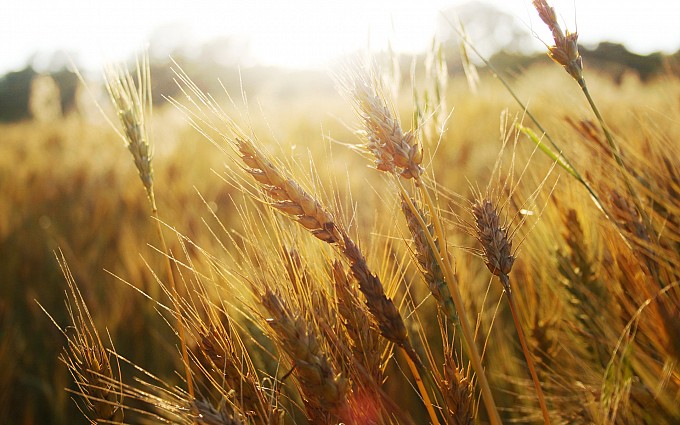
This year has become a serious exam for farmers in Kazakhstan. Domestic varieties of grain crops could “get” farmers out of the problems of high humidity during the harvesting period. However, many were carried away by foreign selection and suffered because of this.
Damir Kaldybaev, chairman of the board of the Karabalyk Agricultural Experimental Station, which today is the country’s leading breeding center, told the ElDala.kz portal about this.
If we talk about the results of the harvest in 2023, then in the Karabalyk Agricultural Plant it is still ongoing; based on the results of threshing 90% of the area, the average yield is 19.3 c/ha. This is an excellent indicator for this season. All operations during the season were carried out on time, fertilizers and protective equipment were used. So if it weren’t for the losses in the fall, the yield would have dropped to 25 c/ha.
“We are really surprised by the results of the cleaning,” said Damir Kaldybaev. - Those varieties that were not expected to “shot out.”
Unfortunately, not all farms have such results. For the most part, farmers received up to 70% of the fodder. That is, this is sprouted wheat with a low falling number - an uncool grain, not suitable for processing into flour, not to mention using as seeds.
In many ways, such problems are the result of farmers’ passion for foreign varieties that are not zoned in Kazakhstan. There are other violations of agricultural technologies, the consequences of which have worsened due to unfavorable weather.
“For many shortcomings that nature forgave farmers in past years, this year it gave them a “failure,” said Damir Kaldybaev. - As for the cultivated varieties: there are elementary selection operations according to the ripeness group, when in the field a share of 20% should be occupied by mid-late, 50% by mid-ripening, 30% by early-ripening. This is insurance against the vagaries of nature, such as the current ones.
Plus, each category has its own sowing dates. You cannot sow early ripening varieties on May 15 - they will give much lower yields. But many farmers do not follow these recommendations.
The Karabalyk Agricultural Plant itself works in strict accordance with scientific recommendations, and therefore the current season has not become critical for the station. Yes, there were difficulties, but we managed to overcome them. The main contribution to this success is the use of domestically selected varieties. This is a signal for all farmers in Kazakhstan - domestic selection cannot be thrown into the background, being carried away exclusively by foreign varieties. There is no change from year to year, and risk diversification is needed. In some seasons some will perform better, in others others. Balance on the field is important.
“I won’t say that all imported varieties have sprouted,” explained Damir Kaldybaev. - No. But basically - yes, they sprouted. This applies to both the selection of non-CIS countries and Russian varieties. And I won’t say that all Kazakh varieties passed this test - not either. But if we are talking specifically about our varieties, the Karabalyk Agricultural Plant, then our efficiency is 75%. That is, we sold four varieties of soft spring wheat - “Aina”, “Fantasy”, “Lamis” and “Kazakhstan early ripening”. Of these, only "Lamis" sprouted. And three other varieties passed the moisture test.
If we talk about the sustainability of varieties, then “Fantasy” is in first place. The assessment was carried out using the grain falling number.
“We removed the last cell of “Fantasy” on October 16,” said Damir Kaldybaev. - She met all the rains - August, September, and October. And I thought there was nothing alive there. But when we removed it and did an analysis, we saw that it had not sprouted at all. She lost gluten, lost her nature, but confidently entered the 4th grade. The falling number is 135. But we know that many farmers who harvested their crops a month earlier, in mid-September, received a falling number of 60 on imported varieties.
The results of this season once again confirmed the correctness of the idea that every farm should have a line of varieties to diversify risks. And for the breeders and seed growers themselves, this is a signal that they need to create and grow seeds with different characteristics. Taking into account the fact that in Kazakhstan one season is not similar to another, sometime one variety will show the best result, and sometimes another.
Thanks to the resulting harvest, KSHOS will be able to offer farmers 6-7 thousand tons of soft spring wheat seeds of domestic elite and super-elite varieties. For barley - about 500 tons.
“The quality of the seeds will be good,” said Damir Kaldybaev. - Yes, there may be up to 5% growth in some batches, but this is absolutely not a critical indicator. That is, if the usual germination rate of our seeds is 96-97%, then this season it will be about 90%. Of course, we have a photo sorter, and it allows us to separate substandard seeds. But there is no economic sense in this. It’s easier to close your eyes to these 5% impurities; they don’t play a role.
Applications for seeds are already coming from different regions, there are a lot of them, since a shortage of seeds is expected in the country. Of course, the needs of elite seed and seed farms will be met first.